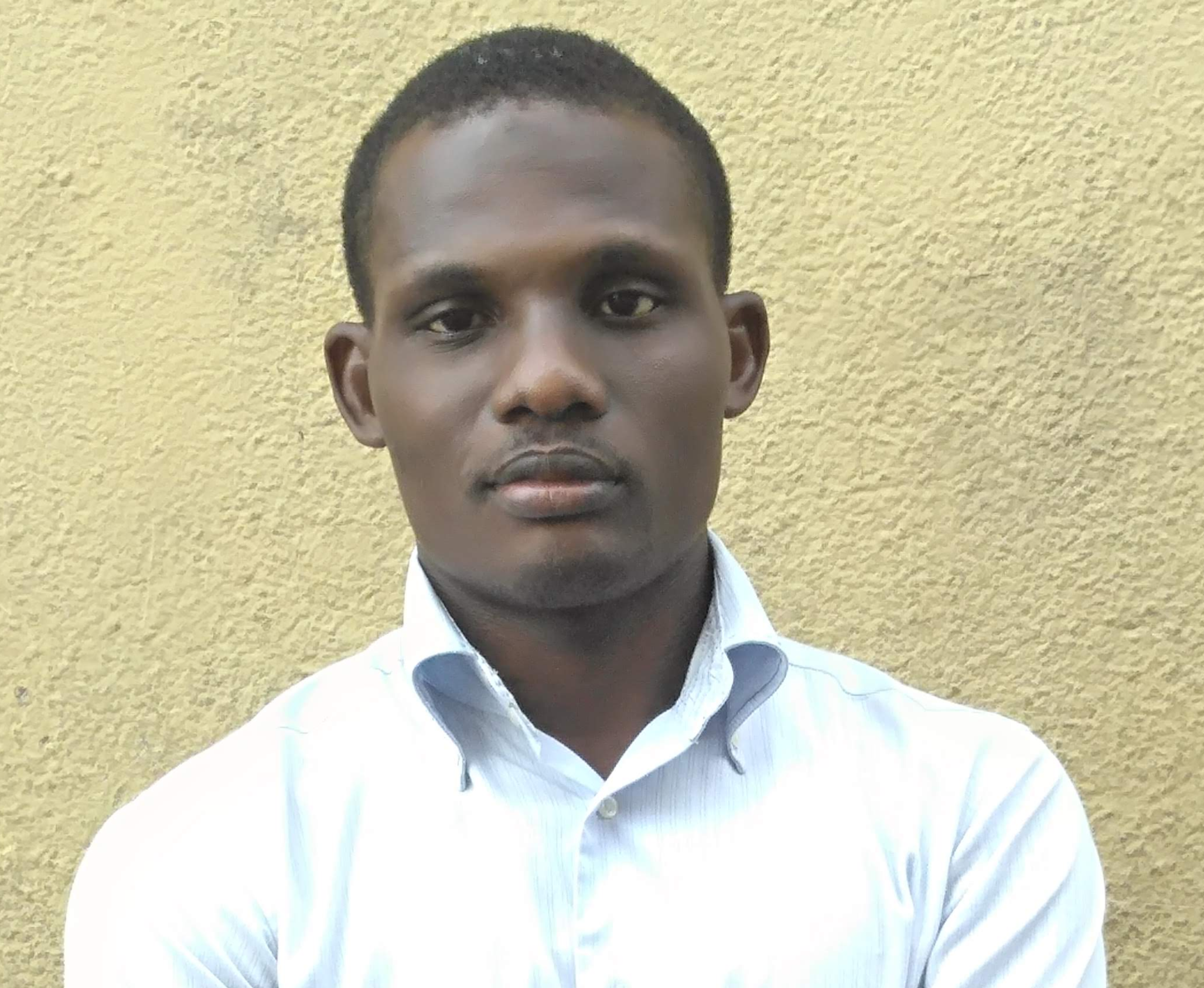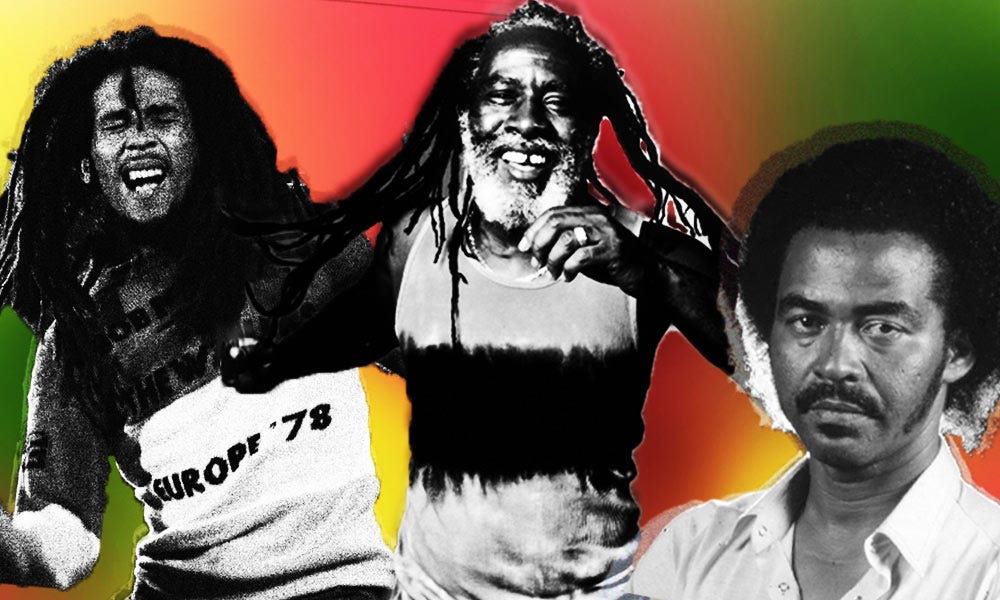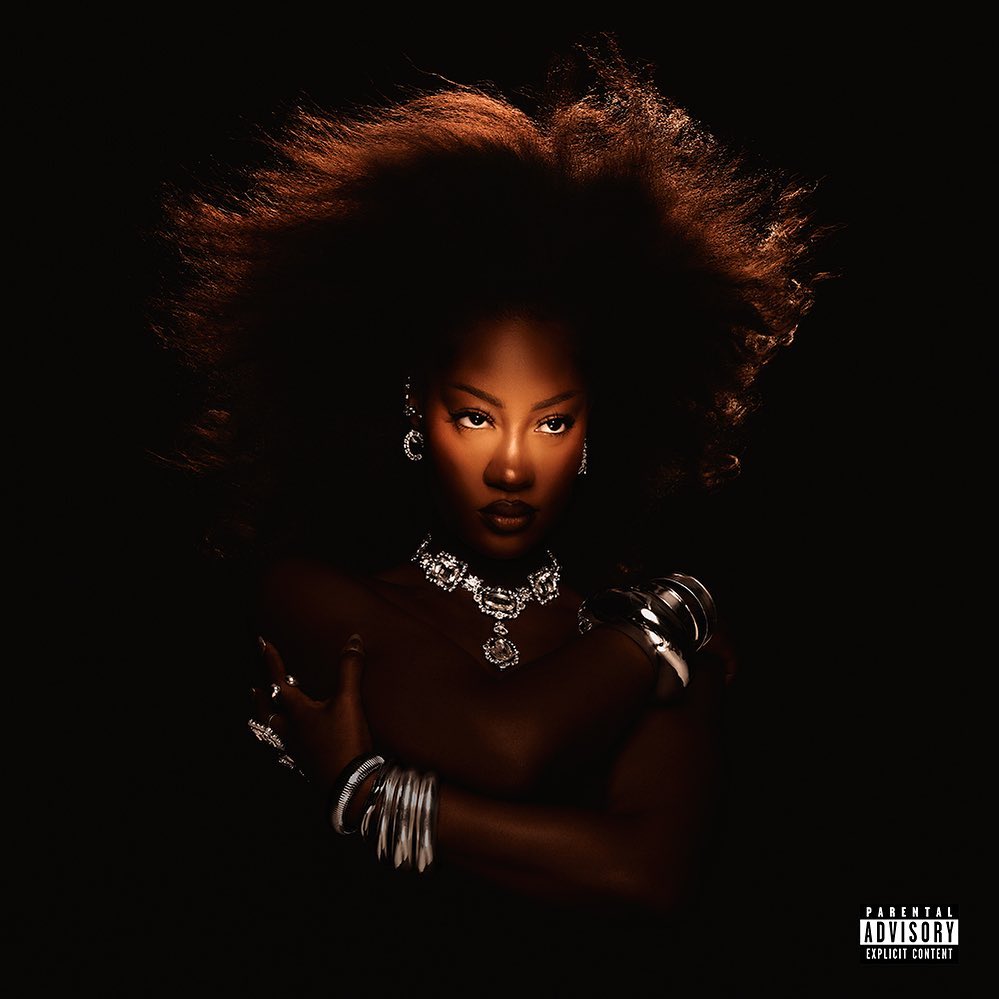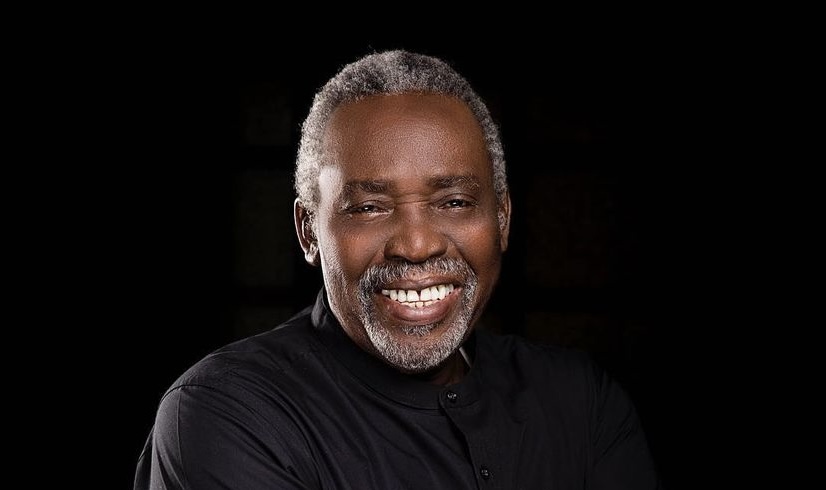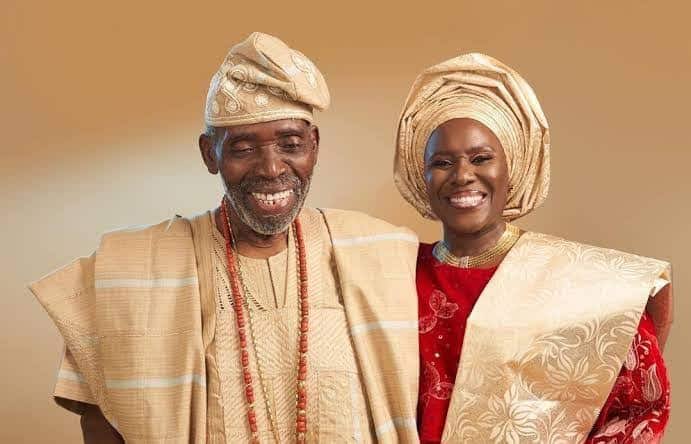Nollywood in its early days, as told by industry practitioners, was dominated by men — a tale of determined male figures with a strong sense of originality and can-do spirit. While this is a compelling tale, like any good film, history often requires a sequel, a chapter that shifts the lens and casts light on the silent storytellers, the visionary women.
These women are not just filmmakers captivating audiences. They are the ‘story-weavers’ who craft compelling narratives. From Chineye ‘Chichi’ Nworah’s intricate plots to Bolanle Austen-Peters’ emotionally charged films and Hamisha Daryani Ahuja, who infuses her unique Bollywood spice into the mix, these women on a mission have changed the story of this industry. They are the image-makers shaping Nollywood’s visual landscape. They are the directors, producers, screenwriters and more — breathing life into Nollywood’s stories.
These women are not only entertaining the world but also challenging the status quo and inspiring a new generation of storytellers.
In honour of International Women’s Day, Netflix pays homage to some of these distinct African women storytellers who with the theme ‘Her Voice, Our Story’- It is a story of resilience and creativity that deserves to be told, a story that continues to unfold with each new film, each new voice, and each new perspective.
‘Her Voice, Our Story’, which celebrates and honours inspiring women in front of and behind the camera, heralds an exciting and diverse slate of upcoming films and series. The upcoming slate of female-led Nigerian stories spans various genres and themes of new local films and series from Mo Abudu (Òlòtūré: The Journey, Baby Farm), Bolanle Austen-Peters (House of Ga’a), Kemi Adetiba (To Kill a Monkey), Chichi Nworah, and Hamisha Daryani Ahuja (Postcards) to launch on the service in 2024:
Bolanle Austen-Peters: A Storyteller Forging Her Path
It is often said that “sometimes, the best man for the job is a woman,” and Bolanle Austen-Peters personifies this adage like no other. Her creative talent has wowed audiences, earning her the title of ‘Queen of Nigerian Theatre’. But it is her artistic prowess that has propelled her beyond the confines of the proscenium arch, shaping the entire entertainment landscape.
Bolanle, dubbed one of Africa’s most powerful women, refused to be boxed in by her impressive academic credentials, which included a Bachelor of Law degree from the University of Lagos and a Master of Arts from the prestigious London School of Economics and Political Science. After her studies, she had a successful career practice as a lawyer working for Afe Babalola and Co. Barristers and Solicitors. Later, she was with the United Nations High Commissioner for Refugees in Switzerland, where she made significant contributions to humanitarian efforts.
Bolanle told GuardianLife that her love for storytelling has been the guiding light in her life, shaping her into the artist she is today. From an early age, she immersed herself in the world of books and would spend hours lost in the pages, devouring stories and transporting herself to different worlds. This instilled in her a deep curiosity and a questioning mind. This curiosity, coupled with an unwavering dedication to excellence, drives her artistic pursuits. Bolanle is driven to explore the “why” behind things.
“Even as a child,” she reminisces, “you would always find me with my nose in a book…Escaping into different worlds fueled my desire to understand the ‘why’ behind things.”
Soon, she realised that storytelling was her true passion, prompting her to transition from the courtroom to the stage over two decades ago. This decision marked the genesis of Terra Kulture, a cultural hub dedicated to celebrating Nigeria’s rich art, culture, and history. And for over a decade, Bolanle established herself as a titan of Nigerian theatre. Her productions have broken box office records and transcended borders, carrying Nigerian stories to international audiences.
But Bolanle’s ambition extends beyond the proscenium arch. Recognising the power of film to reach a wider audience, she ventured into filmmaking. Her debut films, ‘The Bling Lagosians’ and ‘Man of God’, garnered critical acclaim, but it was ‘Funmilayo Ransome-Kuti’ that cemented her reputation as a forward-thinking director in the cinematic genre.
‘Funmilayo Ransome-Kuti’ has garnered critical acclaim, winning Best Feature Film and Best Screenplay at the prestigious Africa International Film Festival (AFRIFF). The film also resonated with audiences, becoming one of the highest-grossing Nigerian films ever.
Currently, Bolanle has collaborated with Netflix on a new project, ‘The House of Ga’a’, an ancient biopic based on true-life events surrounding Bashorun Ga’a, a ferocious and feared Prime Minister/kingmaker who became more powerful than the kings he enthroned.
According to Bolanle, this collaboration with Netflix has been instrumental in bringing this ambitious project to life. “Their support has allowed us to tell the story at the scale it deserves,” she says.
As a woman herself, even through her work, Bolanle is a passionate advocate for sharing not only African but the stories of African women around the globe. She believes that the lack of access to these narratives has led to “inaccurate understandings of who we are.”
Her mission is remarkably clear: to showcase the multifaceted reality of African women, painting a vibrant portrait that embraces their strength, beauty and accomplishments across all spheres of life.
“Our stories are being put out there,” she proclaims, her voice brimming with conviction, “showing strong African women like Funmilayo Ransome-Kuti, showing beautiful African women… Women doing great things in the professions, women in the market, holding the family together. It’s just showing us that the African woman is not a monolith. We’re not just one direction. There’s a lot that we bring to the table.”
As a role model, Bolanle inspires aspiring women and girls through her unwavering belief in the power of dreams. Her message to them is simple yet powerful: “Women must understand that nobody’s going to give you anything; if you have a dream, take the initiative and pursue it with passion. Remember, you are capable of achieving great things if you believe in yourself.”
Chineye ‘Chichi’ Nworah: From PowerPoint To Storytelling
In 2023, the film ‘Shanty Town’ took the world by storm, captivating audiences for weeks on end. The stellar acting, stunning cinematography, and powerful storytelling were the thrills of the film. Described as a “massive testament to how much Nollywood actors have grown by perfecting their craft,” others said, “The acting performances delivered by the cast were truly professional and had a stimulating effect on viewers.” However, ‘Shanty Town’ quickly rose to become the most-streamed African original on Netflix in Nigeria and the second most-streamed across Africa in 2023. But behind the success of ‘Shanty Town’ lies the mastermind behind it all: Chineye ‘Chichi’ Nworah.
Chineye’s foray into filmmaking wasn’t preordained; it all began with a fortuitous encounter with a computer graphics course that sparked her interest in storytelling. Confessing to GuardianLife, she reveals, “I didn’t plan to be a filmmaker. I studied computer sciences… and then I happened to take a course in computer graphics, and then I found out that I could do a lot with words using Microsoft PowerPoint.”
This newfound passion led her to the New York Film Academy. These experiences shaped her into the storyteller she is today. Now, she joins a growing wave of successful female filmmakers making their mark in Africa, particularly in Nigeria.
‘Shanty Town’ has received critical acclaim, garnering 11 nominations at the Africa Movie Critics Awards and 15 nominations (including Best Movie of the Year) at the Best of Nigeria Awards. Building on this success, Nworah produced ‘Slum King’, an African magic original that shattered records as the platform’s most-watched TV series ever.
Chineye tells GuardianLife the driving force behind ‘Shanty Town’: a desire to address societal issues. “It all started in 2019,” she explains. “I wanted to create a platform to showcase the realities happening in our society. I see myself not just as a filmmaker, but as an educator through film…So, ‘Shanty Town’ was a medium to talk about the things that are happening in society.”
The film, set in the gritty streets of Lagos, fearlessly delves into challenging subjects that often remain unspoken. Drug abuse, prostitution, and the harsh realities of life in the city’s underbelly are laid bare, offering a sobering glimpse into a world that many would rather turn a blind eye to. For director Nworah, it was imperative to shed light on these issues and spark a dialogue that could lead to change. “We needed to talk about it and say no to those things,” Nworah says.
She understood the power of cinema to raise awareness and educate, and she welcomed the opportunity to use her platform to address societal issues. The film serves as a mirror, reflecting the struggles and challenges faced by marginalised communities, often overlooked.
In addition to her directorial skills, Nworah is the founder and CEO of Giant Creative Media, a Nigerian TV and film production company, and she is passionate about telling premium African stories to a global audience. She has an illustrious career spanning over a decade, including positions as Content Acquisition Manager at YSG Hubs Ltd. and Head of Content Development and Distribution for Ibaka Entertainment, Nigeria’s VOD platform.
While personally fortunate to avoid significant gender-based challenges in her career, Nworah acknowledges the struggles faced by many women in the industry. “I know some women face these challenges,” she says, “but thank God, a lot of platforms are allowing us to overcome challenges, like Netflix. They have given us a platform to have our voices heard. So, it’s a positive development.”
With sequels to ‘Shanty Town’ in development, Nworah’s relentless pursuit of excellence continues. Her passion extends beyond her own success, as she guides and empowers the next generation, including her daughter who is pursuing a degree in filmmaking.
Echoing her own journey, Nworah offers invaluable advice: “Take your time and learn the business. The business is very important. As a creative, you need to know the rudiments of the business, don’t jump into what you do.”
Mentorship, according to Nworah, is crucial for success. “Look up to someone, have a mentor in the industry, in Nigeria, or anywhere,” she advises. “Watch a lot of films. So you can pick the style you want to be known for. You must have your style.” Importantly, she encourages asking questions: “Be open to asking, ‘What’s that?’ Ask people. Ask the people who are ahead of you. Ask them, How did you do this? How did you achieve this? Please don’t keep things to yourself.”
Hamisha Daryani-Ahuja: From Restaurants To Rom-com
Hamisha Daryani-Ahuja is not your typical filmmaker. The Indian-born, Nigeria-based entrepreneur defied cultural expectations and industry norms to carve her path in the world of cinema. Her debut film, ‘Namaste Wahala’, is a cross-cultural romantic comedy celebrating an Indian-Nigerian love story, this captivated audiences worldwide and became the first Nollywood film to chart in major markets like the US, UK, and India.
Hamisha’s journey is just as unique as her films. Despite having a childhood dream of working in film, she first pursued a business degree and then spent seven years running restaurants in Nigeria. Her artistic spirit, however, never faltered.
Reflecting on her entry into the film industry, she notes,”It was pure magic, first of all, big dreams. I’ve always dreamed of being in the industry since I was little.” However, her cultural background presented similar challenges to those faced by many aspiring creatives. “Indian culture, similar to Nigerian culture, can be quite conservative,” she explains. “My parents, like many, preferred careers in business, law, or medicine.”
Despite these initial hurdles, Hamisha did not give up on her passion. “I went for a business degree,” she says, “but I also studied hospitality, which I genuinely enjoyed.” While managing restaurants, Hamisha continued to pursue her artistic side. “I was also conducting motivational speaking courses called ‘The Pursuit of Happiness,'” she reveals. “My life’s ethos is to be happy, and it’s simple but powerful. It’s actually the secret to my success.”
While teaching, the pursuit of happiness Hamisha said she rekindled her long-forgotten dream, noting that MI Abaga, the renowned musician, gave her insights about the Nigerian love for Bollywood movies.
Fueled by this realisation, Hamisha said she took a leap of faith. “I decided to take a big step and write a movie script,” she shares. This script eventually became ‘Namaste Wahala’, a cross-cultural romantic comedy that celebrates the love story between an Indian man and a Nigerian woman.
Despite formal education, Hamisha understands the value of real-life experience. “Nothing can compare to being on set,” she shares. “My first day on the set of ‘Namaste Wahala’ was like stepping into a classroom.” Her combined business acumen and production experience proved invaluable. “I used my business background for scheduling, budgeting, team selection, and other aspects,” she reveals.”It was truly magical,” she exclaims, “putting your vision out there and seeing it come to life.”
The release of ‘Namaste Wahala’ was a resounding success, trending in the top 10 for over a month in Nigeria. Hamisha’s directorial prowess was recognised with a nomination for Best Director at the AMVCA 2022. But Hamisha wasn’t just interested in creating a successful film; she aimed to make a statement. “I’m all about female empowerment,” she declares, and this message finds its way into ‘Namaste Wahala’. She challenges traditional narratives by presenting a strong, independent female lead who doesn’t need rescuing.
Hamisha isn’t afraid to push boundaries. This time, she told GuardianLife that her upcoming project, ‘Postcard’, is doing more than just blending cultures; it is flipping the script. ‘Postcards’ takes audiences on a vibrant journey, replacing the familiar Nigerian backdrop of ‘Namaste Wahala’ with Bombay’s captivating energy.
She also discussed the importance of female voices in filmmaking, highlighting the distinct viewpoints women bring to the table. “As a woman, I definitely think that makes a difference,” she shares. “We see things differently, and that’s valuable in storytelling.”
As a producer and director, she emphasises the unique strengths women possess in these roles. “We have superpowers,” she says with a laugh, “like multitasking and incredible attention to detail.” These skills, she believes, can help change the narrative surrounding women in leadership positions.
For women contemplating significant life changes but held back by fear, Hamisha offers a compelling message: “Be scared to do it anyways.” she says. “If you’re not scared, it’s not worth it.” She also dispels the notion of competition and paranoia, a mindset she once held. “People want you to win. Back then, I thought everyone was out to get me, but it’s not like that. People really want you to be happy. They want you to win, be kind.”
Dorothy Ghettuba: Championing African Stories On Netflix
There are times in life when one must make bold choices, following the compass of one’s heart’s greatest desire amidst the cacophony of uncertainty—for Dorothy Ghettuba, that moment arrived when she made the monumental choice to return to her roots in Kenya and breathe life into her enduring love for storytelling. Little did she know that her decision would set off a cinematic journey that would take her from the heart of Nairobi to the global stage at Netflix.
After Dorothy arrived in Kenya, she started her career in the film industry. Her desire to change the world and her intense love of narrative led her to co-found Spielworks Media, a production company that was established in 2019. But Dorothy soon realised that, as a newcomer to the industry, she needed to gain a deeper understanding of the local landscape and establish her credibility.
Undeterred, she immersed herself in the Kenyan film industry, working tirelessly to learn the ropes and build her skills. She took on a pivotal role as a production manager at a local TV show, where she honed her craft and gained invaluable experience in various aspects of production. Alongside a talented team composed entirely of women, they produce over 18 award-winning television shows, 20 web series, and 40 movies.
“It was this slate of local productions that attracted the attention of Netflix,” Dorothy shares with GuardianLife, “and when they came knocking, serving Africa from within a leading global entertainment company seemed like the next logical step in my career as a creative.”
Today, Dorothy is the force behind Netflix’s growing library of African content. After joining Netflix over four years ago, she leads the curation of Netflix’s growing portfolio of local language content across Sub-Saharan Africa, overseeing both original productions and licenced series and movies. This role thrusts her into the heart of a dynamic and evolving space, where she collaborates with African creatives to ensure their stories resonate not just within the continent but also with a global audience.
Dorothy’s impact extends beyond the screen, earning her a place in prestigious lists such as Variety Magazine’s Global Impactful Women in 2021 and Leading Ladies Africa’s Top 50 Leading African Corporate Women in 2022, among others.
Yet, her journey hasn’t been without challenges, particularly as a woman in a traditionally male-dominated industry. “My biggest obstacle is the fear of unknown storms,” she admits, “When I started out in the industry, I was unsure of my abilities. I knew that the obstacle was in front of me but I never really ventured in its direction, until I had a near-death experience that made me decide to face my fears.”
“You never have it all figured out,” Dorothy offers advice to aspiring creatives, “and you don’t have to….Like a captain setting out to sea, you have no way of predicting the outcome of the voyage, so you end up inheriting the fears of others…..What is important, is to have a clear destination in mind, a clear port in the distance and future where your ship will anchor.”
“That was how I made a declaration to myself to join and thrive in the filmmaking industry. I continue to weather many storms but I have now taken on the wisdom of a captain at sea because great sea captains are a product of rough seas.”
As the Director of Content Acquisition for Netflix, Dorothy leverages her platform to empower female voices and share diverse African narratives globally. When asked about what being a woman means to her, she doesn’t hesitate: “It means to have courage, for without it, we have no voice. We cannot let our fears dominate us or allow societal prejudices to silence our voices. One great way of achieving this is through stories that reflect our lived experience.”
Reflecting on the industry’s evolution, Dorothy acknowledges streaming services like Netflix as catalysts for a “golden age” of entertainment, where female voices are taking centre stage, both on and behind the camera. “Oh, the growth has been impressive,” she says. “We have extraordinary creativity and talents like Kemi Adetiba, Mo Abudu, Bolanle Austen-Peters, Chichi Nworah, Korede Azeez, and so on bringing some of the best stories to life – ‘Blood Sisters’, ‘Oloture’, ‘King of Boys’, ‘Shanty Town’.”
While noting Netflix’s commitment to Nigeria by increasingly providing a platform for many of these non-English, made-in-Nigeria titles, to shine on a global stage, she attributes the progress of the film industry to the “audacity” of Nigerian women filmmakers, “it is a beautiful thing to find a collective of pioneering women who are not afraid to be their authentic selves…Women are now owning their stories and telling them with their voices,” she says.
She also recognises the perseverance of leading Nigerian women in film, attributing their success to their unwavering spirit. “The most valuable trait we can take from them is persistence,” she says. “It is because of their courage that we are here today.”
Dorothy concludes by referencing the powerful words of Chimamanda Ngozi Adichie, the renowned Nigerian author: “Culture does not make people. People make culture. If it is true that the full humanity of women is not our culture, then we can and must make it our culture.”

